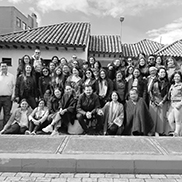
It was founded in 1979 by legal professionals in an effort to defend victims from different segments of the society in human rights violation cases. At a time when Columbia was ruled by governments pursuing radical conservative and militarist policies, it has taken up various litigation cases of arbitrary arrests, extrajudicial executions, enforced disappearances, and torture. It is named after the prominent Columbian lawyer, democracy and human rights defender José Alvear Restrepo.
The Collective played an active role in the peace negotiations between the Revolutionary Armed Forces of Colombia (FARC) and the Columbian Government over the armed conflict that started in the 1960s due to poverty, political exclusion, and drugs trafficking. The peace process resulted in the signing of the historic peace agreement in 2016. After the cessation of hostilities, the Collective has made significant contributions to the transitional justice process. It has secured emblematic court decisions that set the legal precedent for uncovering the historical foundations of socio-political violence as well as establishing the truth behind conflicts. It has undertaken numerous activities promoting the right to political participation of the parties to the armed conflict. It has taken up the cases of assassinated human rights defenders and trade union leaders. It has paid special attention to the protection of land rights of indigenous peoples in Columbia, and represented vulnerable indigenous communities in legal proceedings.
In recent years, it has been working with villagers and indigenous communities of African descent, striving to protect their land against extractive industries. It supports the creation of an international legal framework that would allow multinational companies to be hold accountable for their violations of human rights in relation to climate change.
Enjoying the support of various international institutions and professional organisations, among others, the Collective is affiliated to the World Organization Against Torture (OMCT), the Coalition for the International Criminal Court and the International Federation for Human Rights (FIDH). The Collective has received numerous national and international awards recognizing its efforts in uncovering the truth, preserving the memory of the conflict period, giving visibility to the impact of the [armed] conflict on human lives.
The Collective and its members have been unlawfully subjected to surveillance and threatened by the Columbian secret service. They have been targeted through smear campaigns and faced with bogus charges. Numerous attempts have been made to halt the activities of the Collective. Regardless of all these attacks and political obstacles, the lawyers of the Collective have continued their work, at the expense of risking their lives.
The Collective played an active role in the peace negotiations between the Revolutionary Armed Forces of Colombia (FARC) and the Columbian Government over the armed conflict that started in the 1960s due to poverty, political exclusion, and drugs trafficking. The peace process resulted in the signing of the historic peace agreement in 2016. After the cessation of hostilities, the Collective has made significant contributions to the transitional justice process. It has secured emblematic court decisions that set the legal precedent for uncovering the historical foundations of socio-political violence as well as establishing the truth behind conflicts. It has undertaken numerous activities promoting the right to political participation of the parties to the armed conflict. It has taken up the cases of assassinated human rights defenders and trade union leaders. It has paid special attention to the protection of land rights of indigenous peoples in Columbia, and represented vulnerable indigenous communities in legal proceedings.
In recent years, it has been working with villagers and indigenous communities of African descent, striving to protect their land against extractive industries. It supports the creation of an international legal framework that would allow multinational companies to be hold accountable for their violations of human rights in relation to climate change.
Enjoying the support of various international institutions and professional organisations, among others, the Collective is affiliated to the World Organization Against Torture (OMCT), the Coalition for the International Criminal Court and the International Federation for Human Rights (FIDH). The Collective has received numerous national and international awards recognizing its efforts in uncovering the truth, preserving the memory of the conflict period, giving visibility to the impact of the [armed] conflict on human lives.
The Collective and its members have been unlawfully subjected to surveillance and threatened by the Columbian secret service. They have been targeted through smear campaigns and faced with bogus charges. Numerous attempts have been made to halt the activities of the Collective. Regardless of all these attacks and political obstacles, the lawyers of the Collective have continued their work, at the expense of risking their lives.
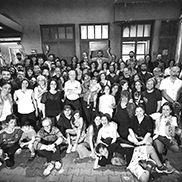
It went on air on 13 November 1995 as a regional radio station broadcasting in the metropolitan Istanbul area and its environs. It has hosted more than 1200 radio programmes, majority of which was produced by more than 1300 volunteers. As a rare example of a genuine community radio, 99% of its programmes are curated and presented by volunteers who “work” on a totally voluntary basis. Its radio programmes are highly diverse, ranging from ecology to economy, sociology to psychology, politics to philosophy, literature to poetry, science, history, archaeology, anthropology, fundamental rights and freedoms, and activism. Its music programmes introduce to its listeners very diverse genres and music cultures from different corners of the world, embracing a rich pluralism.
Its programmes dwell particularly on the future of the planet, global climate crisis, war and peace, struggle for rights, activism, and earthquake. Having ran every possible warning bell against the global climate crisis for many years, it has made pioneering efforts in this field through its broadcasts. Throughout its broadcasting history, it has encouraged people to take action against climate change. It has spearheaded the movements acting against climate change and defending climate justice in Turkey. Having aired live many demonstrations and actions, it increased the visibility of these movements. A great number of its radio hosts took active roles in organizing a rally in Istanbul in 2005 in parallel to the Global Day of Action rallies in other cities across the world, calling for the signing and ratification of the Kyoto Protocol. As part of this global rally, the first of its kind on this topic, the Istanbul rally secured the second highest number of demonstrators across the world, right after London. In 2014, during the historic People’s Climate March held in New York with the gathering of 400,000 people from around the planet, the radio hosted a remarkable broadcast marathon.
As a not-for-profit radio station, despite all the hardships it has continued its activities by preserving its full independence, without any affiliation to interest groups. It has always adhered to its principles of independence, diversity, and freedom of expression. In an effort to secure the sustainability of its independence, in 2004, it launched the project ‘Listener‘s Support’, ensuring the participation of its listeners in the collective efforts of its founders and volunteering programme hosts. In this way, thanks to the constant financial contribution – and intellectual input – from its listeners, it has become a permanent medium. It has been recognized in Turkey and internationally through 60 awards. The station continues its broadcasts 24/7, currently airing 142 programmes produced and presented by 239 radio hosts.
The radio promotes independent music and supports local artists. Built collaborations between local civil society initiatives, universities and cultural institutions over the years. Fosters dialogue between different segments of the society through workshops, cultural events, festivals, exhibitions, and public forums.
Its programmes dwell particularly on the future of the planet, global climate crisis, war and peace, struggle for rights, activism, and earthquake. Having ran every possible warning bell against the global climate crisis for many years, it has made pioneering efforts in this field through its broadcasts. Throughout its broadcasting history, it has encouraged people to take action against climate change. It has spearheaded the movements acting against climate change and defending climate justice in Turkey. Having aired live many demonstrations and actions, it increased the visibility of these movements. A great number of its radio hosts took active roles in organizing a rally in Istanbul in 2005 in parallel to the Global Day of Action rallies in other cities across the world, calling for the signing and ratification of the Kyoto Protocol. As part of this global rally, the first of its kind on this topic, the Istanbul rally secured the second highest number of demonstrators across the world, right after London. In 2014, during the historic People’s Climate March held in New York with the gathering of 400,000 people from around the planet, the radio hosted a remarkable broadcast marathon.
As a not-for-profit radio station, despite all the hardships it has continued its activities by preserving its full independence, without any affiliation to interest groups. It has always adhered to its principles of independence, diversity, and freedom of expression. In an effort to secure the sustainability of its independence, in 2004, it launched the project ‘Listener‘s Support’, ensuring the participation of its listeners in the collective efforts of its founders and volunteering programme hosts. In this way, thanks to the constant financial contribution – and intellectual input – from its listeners, it has become a permanent medium. It has been recognized in Turkey and internationally through 60 awards. The station continues its broadcasts 24/7, currently airing 142 programmes produced and presented by 239 radio hosts.
The radio promotes independent music and supports local artists. Built collaborations between local civil society initiatives, universities and cultural institutions over the years. Fosters dialogue between different segments of the society through workshops, cultural events, festivals, exhibitions, and public forums.
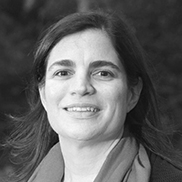
She holds a PhD in Politics from Princeton University, a JD from Yale Law School, an M.Phil in Social and Political Thought from Cambridge University, and a BA from Williams College.
Aslı Bâli is Professor of Law at Yale Law School where she teaches International Law, International Human Rights Law and advanced seminars in international humanitarian law. Bali co-directed Yale’s Kamel Center for the Study of Islamic Law and Civilization. Prior to joining the faculty at Yale, she was a professor at the UCLA School of Law where she was the Founding Faculty Director of the Promise Institute for Human Rights and Director of the UCLA Center for Near Eastern Studies. She currently serves as the President of the Middle East Studies Association of North America (MESA), the preeminent scholarly membership organization in the field. Her research focuses on two broad areas: public international law—including human rights and humanitarian law—and comparative constitutional law, with a focus on the Middle East. Her scholarship has appeared in numerous law reviews and peer-reviewed social science journals and she is co-editor of two volumes addressing different facets of institutional design and comparative constitutional law from Cambridge University Press. She co-chairs the Advisory Council for the Middle East and North Africa Division of Human Rights Watch and serves as a non-resident fellow of the Quincy Institute for Responsible Statecraft. Before becoming an academic, Bâli worked as a human rights lawyer at the United Nations Office of the High Commissioner for Human Rights.
Aslı Bâli is Professor of Law at Yale Law School where she teaches International Law, International Human Rights Law and advanced seminars in international humanitarian law. Bali co-directed Yale’s Kamel Center for the Study of Islamic Law and Civilization. Prior to joining the faculty at Yale, she was a professor at the UCLA School of Law where she was the Founding Faculty Director of the Promise Institute for Human Rights and Director of the UCLA Center for Near Eastern Studies. She currently serves as the President of the Middle East Studies Association of North America (MESA), the preeminent scholarly membership organization in the field. Her research focuses on two broad areas: public international law—including human rights and humanitarian law—and comparative constitutional law, with a focus on the Middle East. Her scholarship has appeared in numerous law reviews and peer-reviewed social science journals and she is co-editor of two volumes addressing different facets of institutional design and comparative constitutional law from Cambridge University Press. She co-chairs the Advisory Council for the Middle East and North Africa Division of Human Rights Watch and serves as a non-resident fellow of the Quincy Institute for Responsible Statecraft. Before becoming an academic, Bâli worked as a human rights lawyer at the United Nations Office of the High Commissioner for Human Rights.
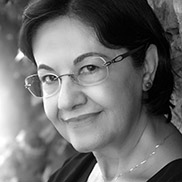
She completed her education at Ankara University Faculty of Political Sciences and York University. She is a founding member of the History Foundation and a member of the General Assembly of the Women's Library. She served as the Chair of the Department of Political Science at Istanbul University Faculty of Political Sciences and taught courses such as "Political Theory," "History of Political Thought," "Contemporary Political Theories," and "Theory of Democracy." In the Women Studies Department, she taught "Feminist Theories." She held the positions of Director of the Istanbul University, Women Studies Application and Research Center, Chairperson of the Women's Works Library and Information Center Foundation, and represented Turkey on various international platforms. Berktay, who has taught courses and given lectures at universities in the United States, Europe, and Australia, has published numerous articles and chapters in the fields of political science and women's studies, both domestically and internationally. Her work titled "Women in the Face of Monotheistic Religions" was published as "Women and Religion" in Canada, and her book titled "The Gender of History" was published in Lebanon under the title "El Huviyye en Nisaiye 'abr et Tarih." Following her books "The Call of Politics" and "Loving the World Today – Hannah Arendt's Understanding of Politics," she published a book titled "Ethics of Thinking," and she continues to work on political ethics, political evil, and feminist history..
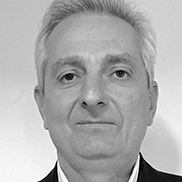
He is an attorney running a law office in Yerevan, Armenia. He specializes in international human rights law and criminal law. He has successfully litigated dozens of human rights cases in the European Court of Human Rights concerning gross human rights violations such as torture, detention, gross violations that occurred in times of war and military conflicts. As an expert, he provides consultancy to several international organizations such as the CoE, the EU, the UN on different human rights issues and different aspects of legal reforms in Armenia. He also teaches human rights law in the Justice Academy and the Academy of Advocates in Armenia. He has several publications concerning hate speech, hate crimes and other human rights issues.
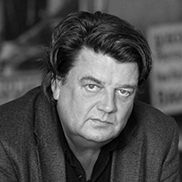
He is the founder and General Secretary of the European Center for Constitutional and Human Rights (ECCHR) in Berlin. He is a human rights attorney at the forefront of the legal fight to hold powerful individuals, corporations, and governments around the world accountable for human rights abuses. Kaleck represents whistleblower Edward Snowden in Europe and has written several books, including “The Concrete Utopia of Human Rights: A Look Back into the Future“ (2021) and “Law versus Power” (2018).
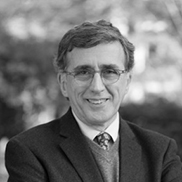
After graduating from the Economics-Statistics department of Middle East Technical University, he completed his master's education in the United States and obtained his doctorate in sociology from New York State University. He has been serving as a professor at the Henry M. Jackson School of International Studies at the University of Washington since 1985. He also served as the director of the same school from 2000 to 2010. Professor Kasaba also works as the director of the Near and Middle East Studies Ph.D. Program. He is a member of the Turkish Academy of Sciences.
He has authored and compiled seven books and more than 40 articles on topics related to the Ottoman Empire and modern Turkey. His latest research examines how the urban/rural divide emerged in Turkey and explores its continuation to the present day along with its political repercussions.
He has authored and compiled seven books and more than 40 articles on topics related to the Ottoman Empire and modern Turkey. His latest research examines how the urban/rural divide emerged in Turkey and explores its continuation to the present day along with its political repercussions.
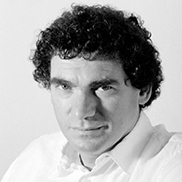
He was born in Istanbul. He received his music education at City University in London, where he received the Ricordi Conducting Award, and later at the Los Angeles Philharmonic Institute, where he studied under Leonard Bernstein. He served as the conductor of the Istanbul State Opera between 1981 and 1989. After a successful debut with the English Chamber Orchestra in London in 1985, he focused his work abroad. He has worked as a guest conductor with orchestras and opera companies in the Netherlands, France, Italy, the Czech Republic, Romania, Brazil, Hungary, Albania, Germany, Sweden, Spain, Mexico, Israel, Finland, Croatia, South Africa, Bulgaria, and Russia. As the founding conductor of the Turkish Youth Philharmonic Orchestra, he has also conducted the Turkey/Armenia and Turkey/Greece Youth Orchestras. He is the honorary president of Ipswich Choral Society, the second oldest choir in England. He is the music director of the Gedik Philharmonic Orchestra starting from the 2022-2023 season.
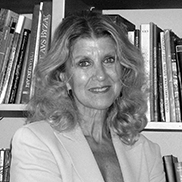
She is a journalist and writer, human rights defender, feminist and peace activist. She has served in the establishment and management of numerous civil society organizations. She founded Milliyet Sanat Magazine and managed it for almost 30 years. She is currently the President of PEN Writers Association, Turkey and a columnist for Cumhuriyet Newspaper. Through her writings, she has built bridges between social events and artistic events in the country, exalting and sharing universal and contemporary values. She has presented at numerous conferences on these topics both locally and outside of Turkey. She is among the founders and managers of various civil society organizations such as Turkey Theatre Critics Association, Nazım Hikmet Foundation, KA-DER, Turkey-Greece Friendship Association, and WINPEACE (Turkey-Greece Women's Peace Initiative). She has received numerous local and international awards including the IPI’s (International Press Institute-Vienna) "Press Freedom Dialogue Award"; UNESCO-Greece’s "Mothers Working for Peace Award"; Catalan PEN Writers Association’s “Free Voice Award”; Moscow Nazım Hikmet Friendship Award; French Government’s "Palmes Academiques Order" and "Knight Order of the Ministry of Culture and Communication".
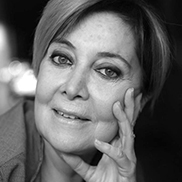
She was born in Istanbul. After Saint-Benoit French High School, she graduated from the Istanbul Municipality Conservatory Theater Department and Istanbul University Art History Department. She worked in public and private theaters, and acted and voiced characters in television and cinema films. She served as the general secretary of the Actors Union during its 2nd term. She currently serves on the discipline committee of Biroy and has been teaching at the Kadir Has University Theater Department for the last ten 10 years.
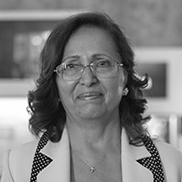
Rakel Dink became involved in human rights activism following the tragic assassination of her husband, the prominent Turkish-Armenian journalist and founder of Agos newspaper, Hrant Dink.
Born to an Armenian family in Silopi, southeastern Turkey, Rakel moved to Istanbul with tens of kids from Anatolia in order to receive education in Armenian Schools. She met with Hrant Dink at Camp Armen, where Armenian children orphans or those away from their families would spend their summers. Rakel and Hrant got married and became managers at Camp Armen in the following years until the property was seized by the state.
Following the death of Hrant Dink in January 2007, Rakel devoted her life to preserving her husband’s legacy. She established the Hrant Dink Foundation in 2007, with a mission to protect and uphold human rights in Turkey, preserve the identity and culture of minorities, address polarization, and normalize Turkish-Armenian relations. Rakel continues to be an optimist and maintains that despite the various challenges that she was forced to overcome throughout her life, she has been surrounded by love and kindness. She is hopeful for the future of Turkey and finds joy in her work and her family.
Born to an Armenian family in Silopi, southeastern Turkey, Rakel moved to Istanbul with tens of kids from Anatolia in order to receive education in Armenian Schools. She met with Hrant Dink at Camp Armen, where Armenian children orphans or those away from their families would spend their summers. Rakel and Hrant got married and became managers at Camp Armen in the following years until the property was seized by the state.
Following the death of Hrant Dink in January 2007, Rakel devoted her life to preserving her husband’s legacy. She established the Hrant Dink Foundation in 2007, with a mission to protect and uphold human rights in Turkey, preserve the identity and culture of minorities, address polarization, and normalize Turkish-Armenian relations. Rakel continues to be an optimist and maintains that despite the various challenges that she was forced to overcome throughout her life, she has been surrounded by love and kindness. She is hopeful for the future of Turkey and finds joy in her work and her family.
